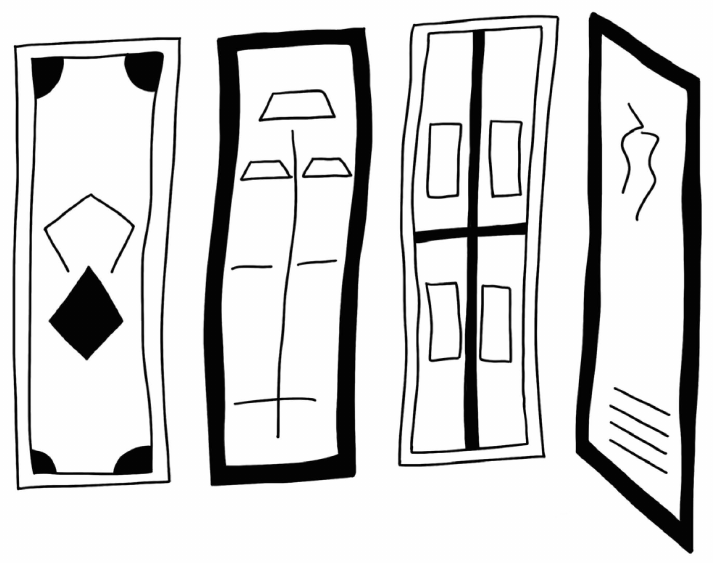
ARTIST STATEMENT by Jill Laudet
Awaken from our illusion of separateness is an installation of 4 large textile banners and a digitally-printed book.
Revelation here signifies an awakening to the interrelatedness and interdependence of all living beings; of recognising the value of all, and our responsibility towards our common home.
The design of the silk banners is loosely based on traditional Persian Paradise Garden and Tree of Life carpets and their use of patterning, repetition, and symmetry to invite a measured consideration.
The texts, integrated into the border designs, are chosen from a range of sources which challenge the anthropocentric view of Nature. The excerpted quotes include the voices of Pope Francis, Thich Nhat Hanh, and of indigenous peoples. The text in the fourth banner is in the form of direct questions raised by climate crisis research and the role of our globalised extractive economic model.
The three ecosystems represented here in banner form are a mangrove swamp, a coral reef, and the rainforest; so rich, in every way, yet being destroyed by economic activity. The living beings inhabiting the rainforest banner include those described in Eduardo Kahn’s How Forests Think: Toward an Anthropology Beyond the Human (2013).
The accompanying book presents found visual imagery and longer quotes derived from the research.
The development of the artwork has been greatly influenced by the contributions of the TheoArtistry project and my collaboration with Porsiana Beatrice, whose timely questioning and suggestions widened my perspective.
RESEARCH COMMENTARY by Jill Laudet & Porsiana Beatrice
The key concept of our collaboration, and for the artwork, was revelation as an unveiling of our interrelatedness to Nature, and our duty of care. Pope Francis’ encyclical Laudato Si was our primary resource and many excerpted texts became integrated into the work.
The turning point which led to a wider perspective was reading Eduardo Kahn’s book How Forests Think: Toward an Anthropology Beyond the Human (2013). With a less anthropocentric perspective, less agency is given to humans to fix things and carry on; rather there is a need to urgently rethink our idea of progress. This led to a refocusing of the emphasis of the narrative. This also resonated with our conversation about the empathy and caring before action and reaffirmed the choice of Paradise Garden carpet design.
Researching and re-interpreting such designs also led to conversations about how works might prompt critical reflection: in particular, the role of repetition and the Deleuzean concept of repetition making room for the difference to appear.
We had many conversations about the use of visual language: colour, material, techniques and the role of metaphors and similes, also helped clarify and refine choices.
Our mutual interests in decolonising the narrative led to seeking out the voices of indigenous peoples, a task greatly aided by social media: lnstagram and YouTube.
The project involved extensive research of chosen ecosystems: their rich biodiversity, their immense contribution to climate stability, and how our economic activity is threatening them is alluded to in the work’s accompanying book.